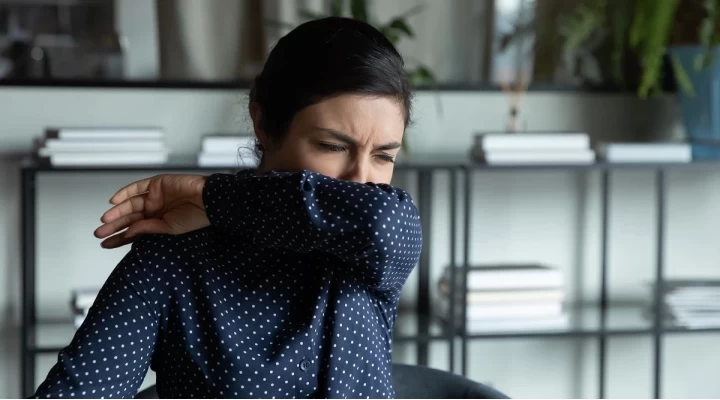At RMC, many of our patients have been asking what they should do if they have already been infected with Covid-19 – what to look out for, and how to gradually return to their normal daily lives. We are happy to have such conscientious patients. With the help of RMC internist Dr Éva Bajnok, we have collected the most important information on this subject: this is what we tell patients who have recovered from the initial infection.
What symptoms have been detected after infection?
The virus has been present in Hungary for less than a year. We don't yet know the precise process of this illness, though fortunately we can access ever more data and findings day after day. We know that this coronavirus can have an effect on the body for a longer period than other viruses, while it can also impact the general state of other chronic diseases or conditions and your ability to do sport and exercise. Even after you have recovered from the infection, you may still experience some symptoms.
According to one study by the prestigious American Mayo Clinic, in the first 1-2 months following your illness, you may experience the following symptoms:
- Fatigue
- Shortness of breath
- Coughing
- Joint pain
- Chest pain
Less commonly, you might also experience muscle ache, headaches, palpitations or a more rapid heartbeat, persistent loss of taste and smell, problems with REM sleep and concentration, dizziness, rashes and hair loss.
It is particularly concerning that in a study carried out in Germany, from 100 Covid-19-infected patients with an average age of 49 years, mostly with non-severe symptoms, myocardial abnormalities were identified after two weeks in 78 of these patients (i.e., approximately four in five), in contrast to the control group.
When are check-ups and screening tests especially recommended?
Of course, this depends on the serious of the symptoms during your illness.
- If you also had pneumonia, your recovery should definitely be monitored even more closely.
- If you required hospital treatment, you should first ask for the opinion of the treating physician with regards to when and what kind of check-ups you should have. It is also a good idea to read the hospital discharge report. If you do not understand something, please ask a health professional to help explain it. It has been confirmed that imaging studies have shown that non-severe Covid-19 infections can also lead to damage to the heart muscle and lung tissue scarring.
It is important that the patient only gradually returns to their pre-infection lifestyle, and in the event of persistent or increasing complaints, you should seek medical attention as soon as possible.
Screening is especially recommended as soon as possible if you have any underlying disease (especially diabetes, high blood pressure, high cholesterol, obesity) where you are due for a check-up. If you have a new or old complaint that has not yet been examined, this should definitely be investigated – by attending an internal medicine consultation, for example. It is often said that people with old and chronic diseases are most at risk. However, in Hungary many people are aged 60 or above, diabetic or hypertensive. One in ten people have diabetes, two in ten have high blood pressure and every third Hungarian is obese.
What should you do until the arrival of the vaccine?
According to American data, Covid-19 is currently claiming TWICE? as many victims as cancer. We are still waiting for a vaccine to be available securely and on a wide scale. Until that time, because there is no other reliable treatment for Covid infections, everybody should take good care of themselves and their environment. Remember to wear a mask, wash your hands and maintain an appropriate distance from other people. So far, it has not been possible to clearly establish whether it is possible for someone to catch Covid a second time after recovering from the disease, but our experience so far would suggest that you can.
It is essential to drink enough water, take vitamins, have a nutritious diet and get regular exercise, as these can all help protect against the virus and aid recovery.
None of us can wait for the end of the Covid epidemic and the chance to finally return to our normal, everyday lives. The healthcare professionals trust that the effect of the events of the last few months will encourage us to live better and healthier lives than in the past.




